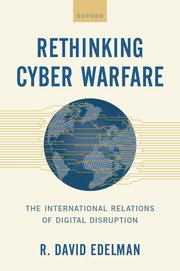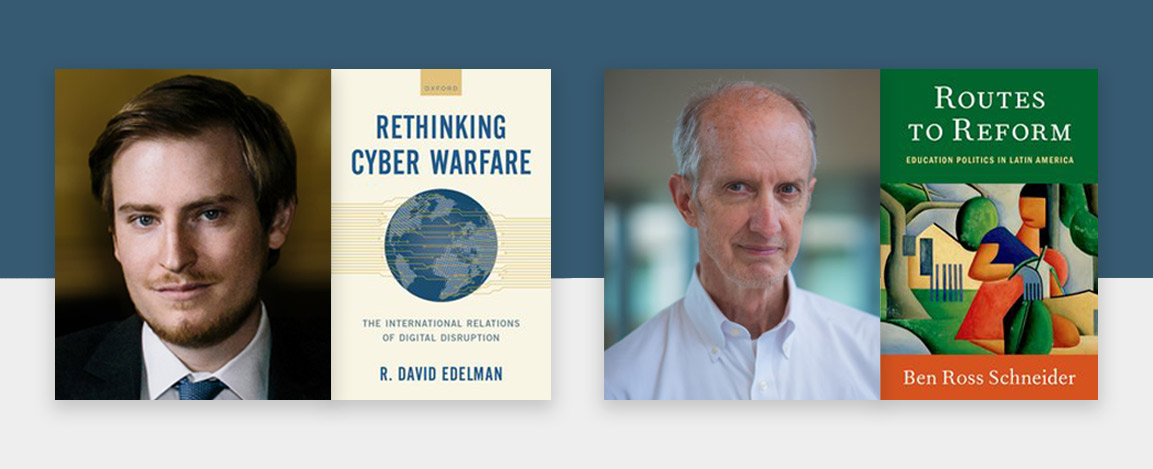The latest releases from the Center’s faculty, fellows, and scholars are featured below. An archive of CIS books is available here.

Rethinking Cyber Warfare: The International Relations of Digital Disruption (Oxford University Press)
R David Edelman (CIS research affiliate)
Fifteen years into the era of “cyber warfare,” are we any closer to understanding the role a major cyberattack would play in international relations—or to preventing one? Uniquely spanning disciplines and enriched by the insights of a leading practitioner, Rethinking Cyber Warfare provides a fresh understanding of the role that digital disruption plays in contemporary international security. Focusing on the critical phenomenon of major cyberattacks against wired societies, the book reconsiders central tenets that shaped global powers' policies and explains what forces in the international system might durably restrain their use. Arming the reader with the key technological and historical context to make sense of cyberattacks, it explores how deterrence, international law, and normative taboos operate today to shape whether and how states think about causing this kind of disruption—and how soon those forces might combine to rethink those decisions entirely. The result is a comprehensive look at one of the most pressing issues in international security that also illuminates a new pathway for managing one of its greatest sources of instability.

Routes to Reform: Education Politics in Latin America (Oxford University Press)
Ben Ross Schneider (Ford International Professor of Political Science; director, MIT-Chile Program)
The key to sustained and equitable development in Latin America is high quality education for all. However, coalitions favoring quality reforms in education are usually weak because parents are dispersed, business is not interested, and much of the middle class has exited public education. In Routes to Reform, Ben Ross Schneider examines education policy throughout Latin America to show that reforms to improve learning—especially making teacher careers more meritocratic and less political—are possible. Several Andean countries and state governments in Brazil achieved notable reform since 2000, though on markedly different trajectories. Although rare, the first bottom-up route to reform was electoral. The second route was more top-down and technocratic, with little support from voters or civil society. Ultimately, by framing education policy in a much broader comparative perspective, Schneider demonstrates that contrary to much established theory, reform outcomes in Latin America depended less on institutions and broad coalitions, but rather—due to the emptiness of the education policy space—on more micro factors like civil society organizations, teacher unions, policy networks, and technocrats.




